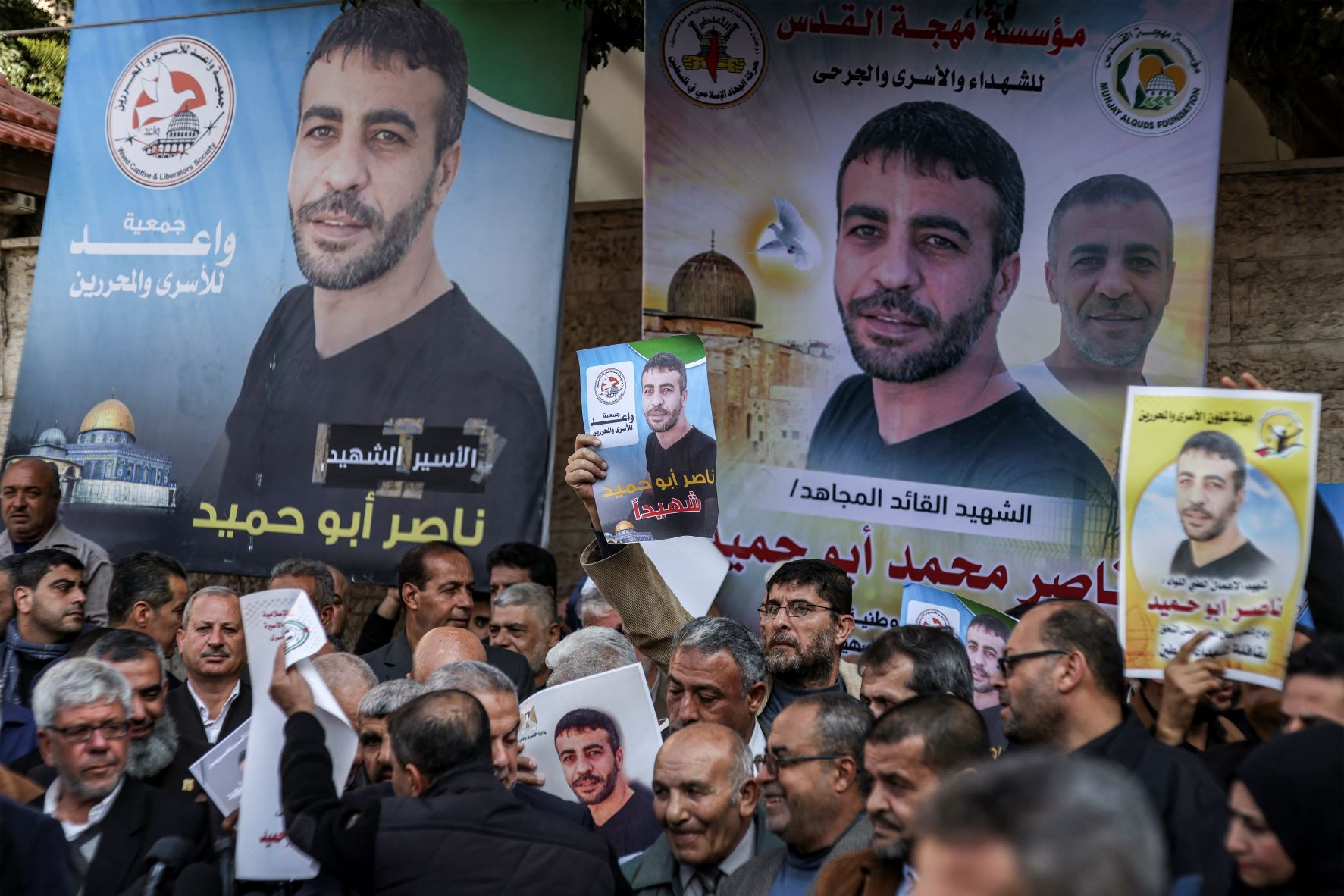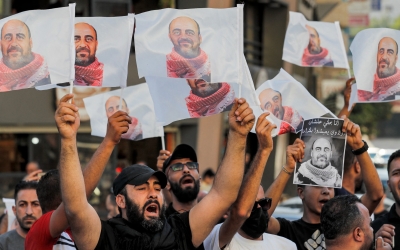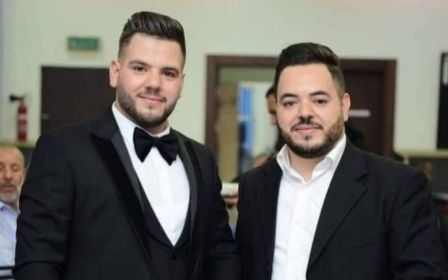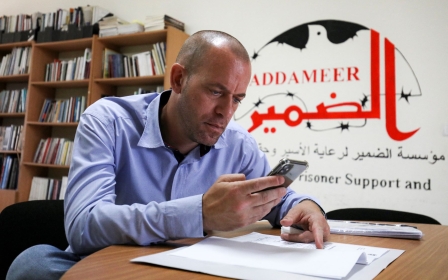Israel: Palestinian prisoner dies after 'deliberate' medical negligence

A high-profile Palestinian prisoner died on Tuesday morning as a result of what his family and local rights groups say is medical negligence by Israeli prison authorities.
Forty-nine-year-old Nasser Abu Hamid, from Amari refugee camp in Ramallah, had been imprisoned since 2002 over his involvement in the Al-Aqsa Martyrs Brigade, the armed wing of the ruling Fatah party.
Hamid, who co-founded the group and was convicted of involvement in several killings during the Second Intifada, had been diagnosed with late-stage lung cancer in August 2021 - however, Israeli prison authorities ignored his complaints of chest pain for "many months" according to Abdullah al-Zaghari, the head of the Palestinian Prisoners' Society (PPS).
'Even now, he is being used to punish the family. The authorities still have his body. We do not think they will release him'
- Abdullah al-Zaghari, Palestinian Prisoners' Society
Under pressure from other Palestinian prisoners in the Ashkelon prison, Israeli authorities took him to hospital where he was diagnosed. Since then, his health had been "rapidly declining" after continued "medical negligence".
In January 2022, Abu Hamid fell into a coma caused by acute pneumonia due to a bacterial infection in his lungs. He remained in the coma for at least 12 days.
In September, PPS described Hamid as "fighting death". By October it reported that he had reached “the point of no return” and risked dying at any moment.
"They are systematically and deliberately killing Palestinian prisoners," Zaghari told Middle East Eye.
According to Zaghari, the daily reports compiled by PPS have found that not a single day goes by where there isn't a Palestinian prisoner in Israeli prisons who needs treatment. They have seen more than 600 cases and at least 24 with cancer, all of whom were diagnosed too late due to the lack of routine health checks on Palestinian prisoners.
"Abu Hamid's lawyers were fighting for him to be released to receive proper treatment. They petitioned the Israeli courts five times to release him, and five times they refused," he explained.
"They are systematically and deliberately killing Palestinian prisoners. The Israeli occupation is responsible for what happened to him."
A policy of 'medical neglect'
According to human rights group Addameer, health care for prisoners falls under the responsibility of the state and it is a human right for prisoners to have access to the same healthcare services available within the community without discrimination.
Despite this, Addameer has reported an increase in the number of sick prisoners in Israeli prisons, attributing it to a "policy of medical neglect", with overcrowding and prison environments not meeting international standards.
As of late Tuesday morning, Abu Hamid’s family had not yet received news from the Israeli authorities on whether his body would be returned to them or not for burial. Zaghari is doubtful that his body will be returned.
Human rights organisations have condemned Israel for their policies which allow the bodies of slain Palestinians to be withheld from their families. Since 2016, Israel has withheld at least 117 Palestinian bodies.
"Even now, he is being used to punish the family. The authorities still have his body. We do not think they will release him," he said.
He pointed out that at least 10 Palestinian prisoners had died in jail due to medical negligence and Israel was still in possession of their bodies.
“Every year the Israeli government's crimes against us become more aggressive and the international community stays silent," Zaghari told MEE.
"They all claim to care about human rights, but they are lying and sharing in Israel's crimes.”
Middle East Eye propose une couverture et une analyse indépendantes et incomparables du Moyen-Orient, de l’Afrique du Nord et d’autres régions du monde. Pour en savoir plus sur la reprise de ce contenu et les frais qui s’appliquent, veuillez remplir ce formulaire [en anglais]. Pour en savoir plus sur MEE, cliquez ici [en anglais].





